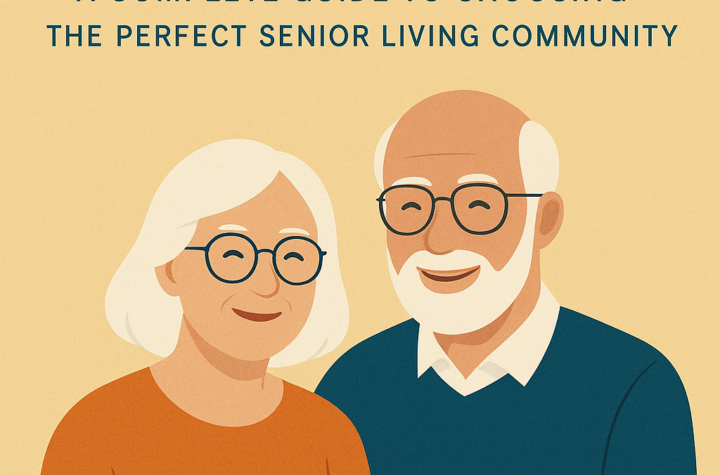
Embracing a healthy lifestyle often includes eating balanced, nutritious meals, staying physically active, and focusing on your mental well-being.
Living healthily is all about finding habits and routines that bring you joy and make you feel your best. The beauty of a healthy lifestyle is that it’s unique to each individual—you have the power to define what it means for you.
Read on to discover the key benefits of adopting a healthy lifestyle and practical tips to help you get started on your journey.
How Does a Healthy Lifestyle Help?
- Reduces the Risk of Disease
Research consistently highlights the powerful impact of healthy habits on preventing diseases:
- A 2020 study revealed that adults who consumed a diet rich in fruits and vegetables for eight weeks significantly lowered their risk of cardiovascular disease.
- Another study from the same year showed that increasing daily fruit and vegetable intake by 66 grams was linked to a 25% lower risk of developing type 2 diabetes.
- A study involving nearly 200,000 adults found that those who ate the highest amount of whole grains had a 29% lower risk of developing type 2 diabetes compared to those who consumed the least.
Physical activity also plays a crucial role. A 2020 study involving 44,000 adults discovered that just 11 minutes of moderate-to-vigorous exercise daily reduced the risk of death. This benefit was evident even among those who spent an average of 8.5 hours a day sitting.
Adopting healthy dietary and exercise habits can make a significant difference in preventing major health issues.
2. Saves Money Or Reduces Healthcare Costs
Regular visits to your primary care physician for annual check-ups are essential, even if you feel perfectly healthy. Some health conditions, often referred to as “silent” illnesses, can develop without showing any noticeable symptoms.
By seeing a doctor regularly, you increase the likelihood of identifying potential health issues early, which can lead to better treatment outcomes and overall well-being.
Maintaining a healthy lifestyle can also reduce how often you need medical attention, potentially saving money on:
- Co-pays
- Prescription medications
- Additional treatments
Investing in preventive care and healthy habits today can lead to significant savings in the long run.
3. Increases Longevity
Simple healthy habits are strongly linked to a longer life. Research suggests that adopting these practices by age 50 could add up to 14 more years to your lifespan:
- Avoid smoking altogether.
- Maintain a healthy body weight.
- Stay physically active with at least 30 minutes of moderate to vigorous activity daily.
- Follow a balanced, nutritious diet.
- Consume alcohol in moderation (5 to 15 grams per day for women and 5 to 30 grams per day for men).
Even small adjustments to your lifestyle can have a significant impact on your longevity and overall quality of life.
4. Benefits the Environment
Ultra-processed foods, which account for more than 70% of products in U.S. stores, are produced with significant environmental impact.
supermarkets, has a significant environmental impact. These foods often contain refined grains and additives to enhance texture, taste, or color, and their production contributes to:
- Greenhouse gas emissions
- Water scarcity
- Loss of biodiversity
- Plastic pollution
- Deforestation
Making eco-friendly choices, such as reducing consumption of ultra-processed foods or opting for biking instead of short car rides, can help lower carbon dioxide emissions and support a healthier planet.
Even minor adjustments to your lifestyle can have a significant positive impact on the environment.
What’s the Best Way to Begin?
Starting a healthier lifestyle can be simple when you begin with small, manageable changes that feel achievable. A helpful approach is to set “SMART” goals, which are:
- Specific: Clearly define your objective.
- Measurable: Track your progress.
- Attainable: Ensure your goal is realistic.
- Relevant: Align it with your personal priorities.
- Time-Bound: Set a deadline to stay on track.
Concentrating on SMART goals enhances the likelihood of achieving success.
Achieving one small goal can motivate you to take on bigger challenges as you build momentum.
Here are some practical tips to help you begin your journey toward better health.
1. Add More Vegetables to Your Diet
Research from 2020 indicates that eating enough fruits and vegetables can significantly lower the risk of:
- Heart disease
- Stroke
- Cancer
- Premature death
You don’t need to overhaul your diet overnight. Start small by adding just one serving of vegetables to your dinner. If you’re already doing this, try incorporating a fruit or vegetable into every meal.
Small, consistent steps can lead to lasting changes and major health benefits.
2. Choose Whole Grains Instead
A 2020 study indicates that consuming more whole grains is associated with a reduced risk of:
- Diabetes
- Obesity
- Cardiovascular disease
- Cancer
Start by replacing one refined grain with a whole grain each day. For example, if you usually have cereal for breakfast, try switching to oatmeal instead.
Examples of whole grains include:
- Plain oats
- Whole grain bread and pasta
- Brown and wild rice
- Buckwheat
- Bulgur wheat
- Millet
- Barley
- Spelt
- Quinoa
- Farro
Refined grains include:
- White bread and pasta
- White rice
- Most breakfast cereals
- Chips
- Pretzels
- Crackers
By gradually making the switch, you can improve your diet and boost your health.
3. Increase Your Activity Level
The key to staying active is finding an exercise you genuinely enjoy. This makes it more likely that you’ll stick with it in the long run.
Some fun and accessible activities include:
- Walking
- Pilates
- Cycling
- Dancing
You don’t need to commit to long workouts at first. Start with just 10 minutes a day, 5 days a week, and gradually increase the duration as you become more comfortable.
The CDC recommends aiming for 150 minutes of moderate-intensity exercise each week, along with two days dedicated to muscle-strengthening activities.
Small, consistent steps can lead to lasting fitness.
4. Nurture Your Friendships
Maintaining strong social connections with friends and family is essential for good mental health. If in-person meetings aren’t possible, set aside time each week for a phone or video call to stay connected and engaged with loved ones.
5. Manage Stress
Physical activity is a great way to relieve stress, as it helps release built-up energy and triggers the production of mood-boosting endorphins.
Other effective ways to manage stress include:
- Meditation
- Deep breathing exercises
- Journaling
- Spending time outdoors
- Talking with friends
If stress continues to be overwhelming, consider seeking professional support. Working with a psychologist, psychiatrist, or therapist can provide guidance to manage stress and equip you with valuable coping skills for life’s challenges.
Embrace Moderation
A balanced approach to healthy living includes room for indulgences like enjoying ice cream, taking a break from workouts, or having a glass of wine with dinner.
Adopting an all-or-nothing mindset, where only “good” foods are allowed and “bad” ones are forbidden, often leads to frustration and burnout. Allowing yourself occasional treats, like savoring a bowl of ice cream, is also part of a healthy lifestyle.
Rest days are just as crucial for your physical and mental health.
Overexercising can increase injury risks and lead to burnout, making it harder to maintain a regular workout routine. Moderation is key to sustainability and long-term health.
Key Takeaways
Living a healthy lifestyle not only boosts your well-being but also reduces the risk of certain diseases, extends your life, saves money, and has a positive impact on the environment.
Begin with small changes to make the process manageable and increase your chances of success. As you experience small wins, they’ll build momentum, leading to even greater benefits.
If you need guidance on making lifestyle changes, consult your doctor. They can provide advice or refer you to other specialists, such as registered dietitians or therapists, who can offer additional support.



More Stories
Golden Years, Golden Choices: A Complete Guide to Choosing the Perfect Senior Living Community
Top 10 Bedding Essentials: Elevate Your Comfort and Style
Flossing Daily May Lower Heart Disease, Stroke, and AFib Risk